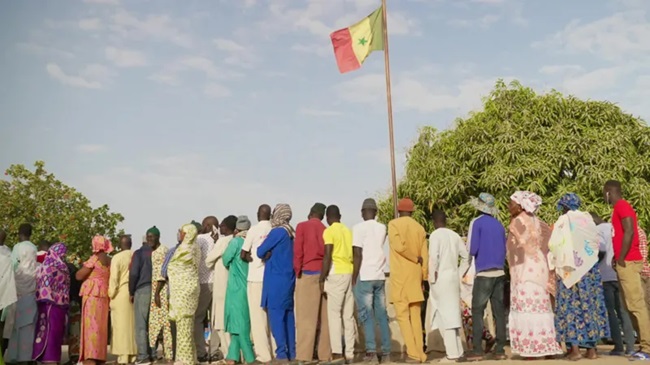Senegal election: Voters choose new president after political crisis
After weeks of political unrest, people in Senegal are voting for a new president.
Seventeen candidates are on the ballot, each hoping to replace President Macky Sall who is barred from running again after reaching the two-term limit.
The election had been due to take place last month but Mr Sall postponed it, triggering deadly opposition protests and a democratic crisis.
Senegal had until then been praised as a bastion of democracy in West Africa.
Seven million people are eligible to vote in Sunday’s election.
Among those in the running for Senegal’s top job is the governing BBY coalition’s candidate, former Prime Minister Amadou Ba, 62.
His strongest challenger is seen as Bassirou Diomaye Faye, 44, who was released from jail just last week, after being detained since April 2023 on charges of insurrection, which he said were politically motivated.
Popular firebrand Ousmane Sonko, who was also imprisoned until last week on what he said were trumped-up charges, is not allowed to stand. He and his now-disbanded Pastef party are backing his close ally, Mr Faye.
On Friday, former President Abdoulaye Wade and his PDS party threw their support behind Mr Faye, after his own son Karim Wade was forced to withdraw over his dual French-Senegalese citizenship.
For the first time in over a decade, a female candidate is in the race. Anta Babacar Ngom, 40, leads the ARC party.
Results are expected within days and a second round is likely, because of the large number of contestants. A candidate needs more than 50% of the vote to be declared the winner.
The eyes of the world will be watching to see if the election process goes some way to restoring Senegal’s now-bruised reputation.
Speaking to the BBC earlier this week, President Sall said that he had “no apology to make” for postponing the election, which was originally due to be held on 25 February.
“I have done nothing wrong,” he said, adding that the decision to delay the vote was not taken unilaterally, but was due to electoral concerns raised by members of parliament.
“All the actions that have been taken have been within the framework of the law and regulations.”
Source: BBC




